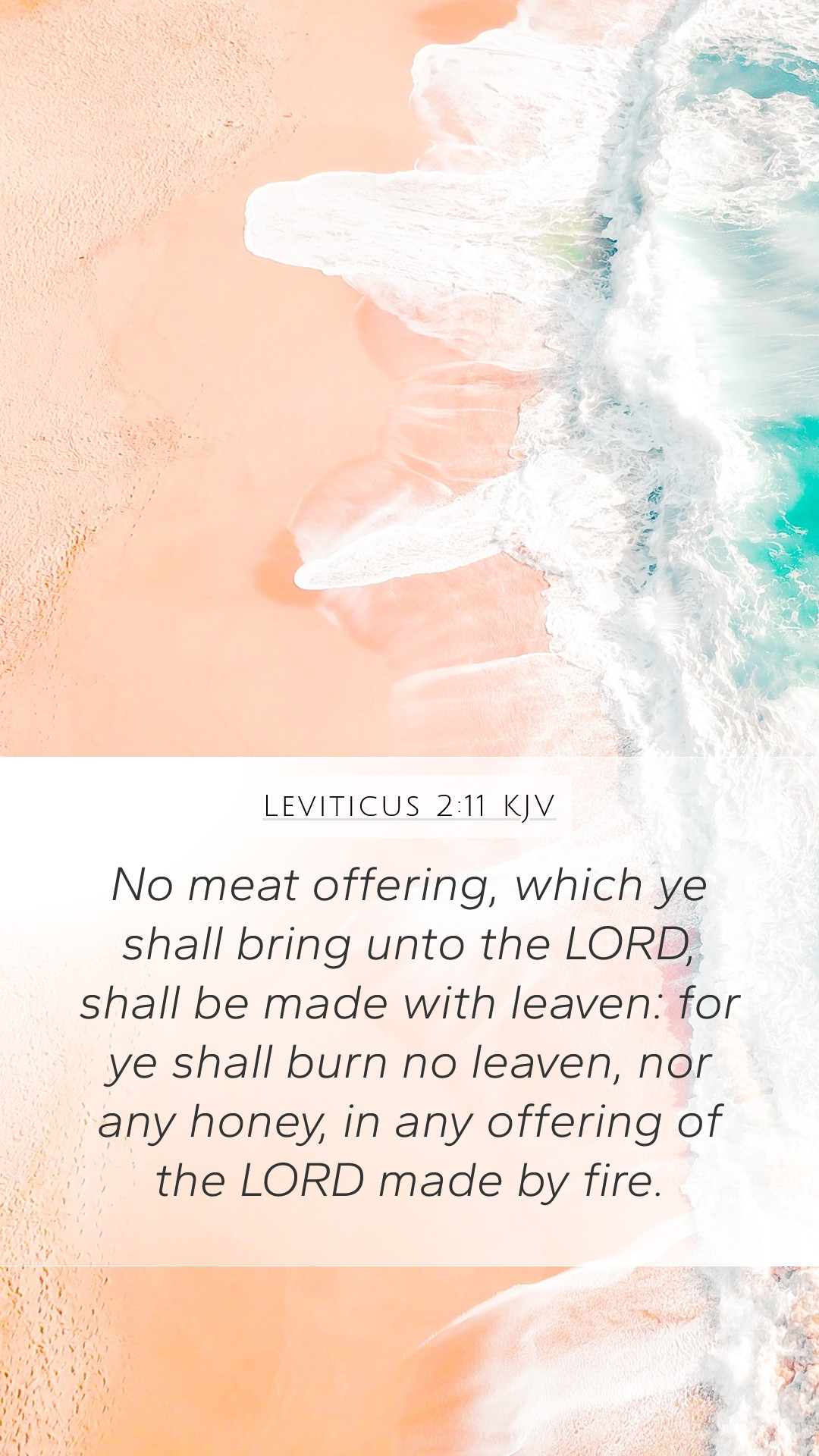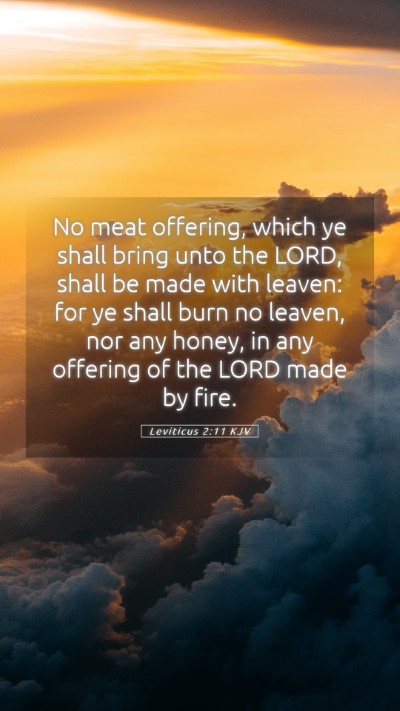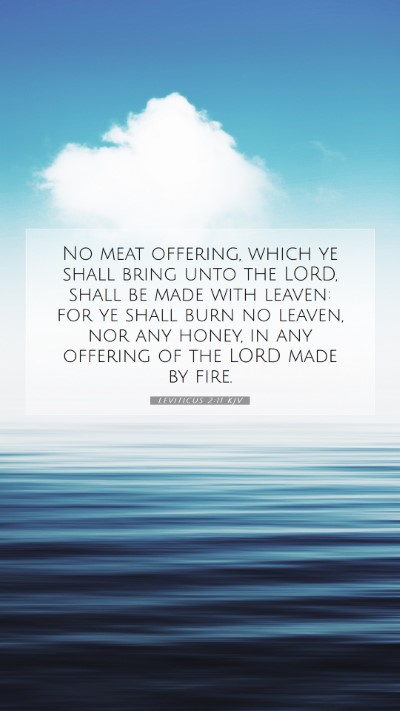Understanding Leviticus 2:11
Leviticus 2:11 states:
"No grain offering that you bring to the LORD shall be made with leaven, for you shall burn no leaven nor any honey as a food offering to the LORD."
This verse provides significant insight into the nature of the offerings presented to God under the Mosaic Law. Below we explore the meanings, interpretations, and implications derived from public domain commentaries.
Overview of the Verse
In Leviticus 2:11, the prohibition against leaven and honey in grain offerings directly relates to the purity and holiness required in offerings presented to God. Each element of the offering is symbolic, representing both the worshipper's relationship with God and the spiritual requirements for approaching Him.
Commentary Insights
Matthew Henry's Commentary
Matthew Henry emphasizes the holiness associated with offerings made to God. He explains that leaven, a representation of corruption and sin, cannot be included in the offerings as it might diminish their sanctity. The exclusion of honey is interpreted as indicative of the sweetness of earthly delights which, when compared to the seriousness of worship and reverence for God, should not be mixed in the offerings intended for Him.
Albert Barnes' Notes
Albert Barnes adds that leaven is often used symbolically in the Bible to represent sin, thus reinforcing the idea that offerings should be free from any form of corruption. He elaborates on the significance of making one's offerings as pure as possible, noting that even a small amount of leaven can affect the entire offering, similar to how sin can affect an entire community or individual. His insight encourages believers to approach God with sincerity and purity of heart.
Adam Clarke's Commentary
Adam Clarke outlines the cultural and historical context surrounding the prohibition against leaven. He connects this teaching to the broader context of the Israelites' deliverance from Egypt, associating leaven with the old life of sin. Clarke also interprets the absence of honey as reflective of the serious nature of sacrificial worship, where the focus should be on obedience rather than the pursuit of personal pleasure.
Meaning of Key Elements
- Leaven: Symbolizes sin and corruption; its presence in offerings is seen as unacceptable.
- Grain Offering: Represents dedication and devotion to God; purity is paramount.
- Honey: Indicative of earthly sweetness, which should not overshadow true worship.
Spiritual Implications
The prohibition of leaven and honey signifies the importance of sincerity, purity, and the need for a heart aligned with God's will in acts of worship. These offerings are reflections of a worshipper’s dedication, requiring the utmost reverence. In a broader sense, the verse challenges believers to examine their offering to God in light of their spiritual condition, ensuring that they approach Him without the hindrances of sin or worldly distractions.
Applications for Modern Believers
In our contemporary practice, Leviticus 2:11 serves as a reminder of the need for purity in our hearts and motivations when engaging in acts of worship. Whether through prayer, service, or community involvement, we are called to ensure our offerings to God are free of 'leaven' – that is, unconfessed sin or insincere intentions.
Related Bible Cross References
- Exodus 12:15: Discusses the removal of leaven before the Passover.
- 1 Corinthians 5:6-8: Paul uses leaven as a metaphor for sin in the church.
- Hebrews 13:15: Encourages the offering of praise to God, emphasizing purity of worship.
Conclusion
Understanding Leviticus 2:11 encourages deep reflection on our worship practices, ensuring that they meet God's standards of holiness. By examining the meanings of this verse through various commentaries, we attain richer Bible verse understanding and insights that can guide our spiritual journeys.
For further exploration into Bible study topics and enhancing your Biblical exegesis, consider engaging with resources that facilitate online Bible study and discussions in Bible study groups.


